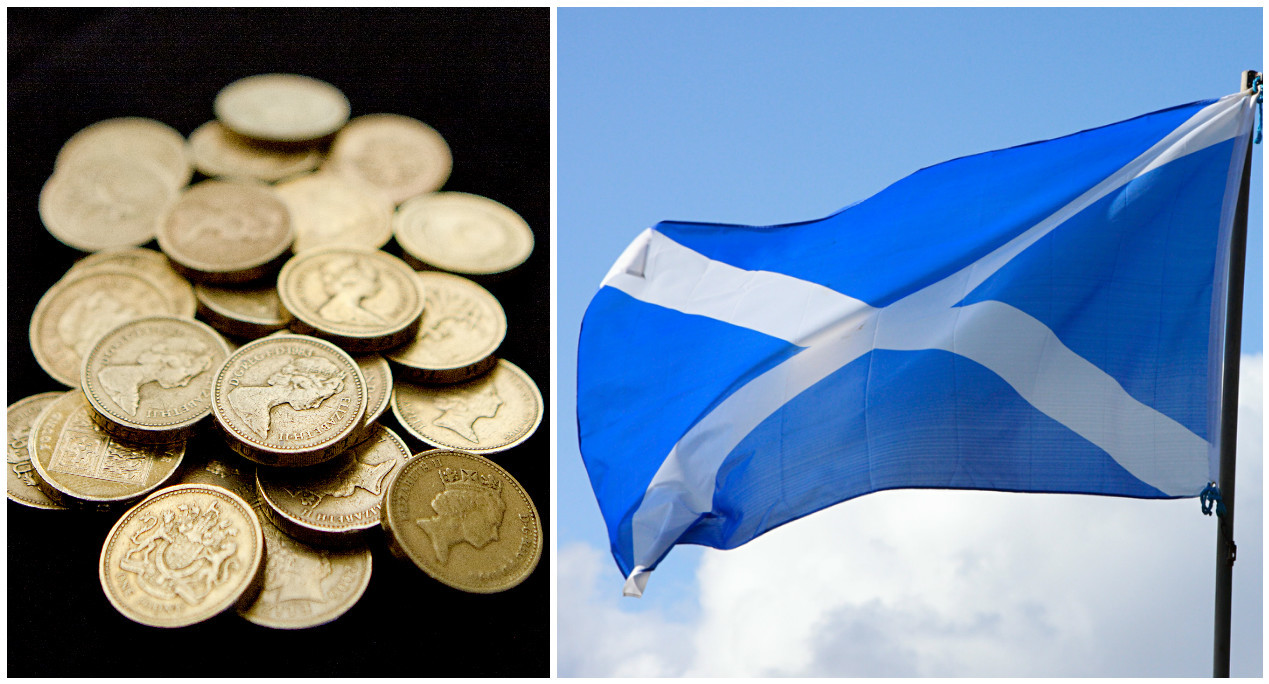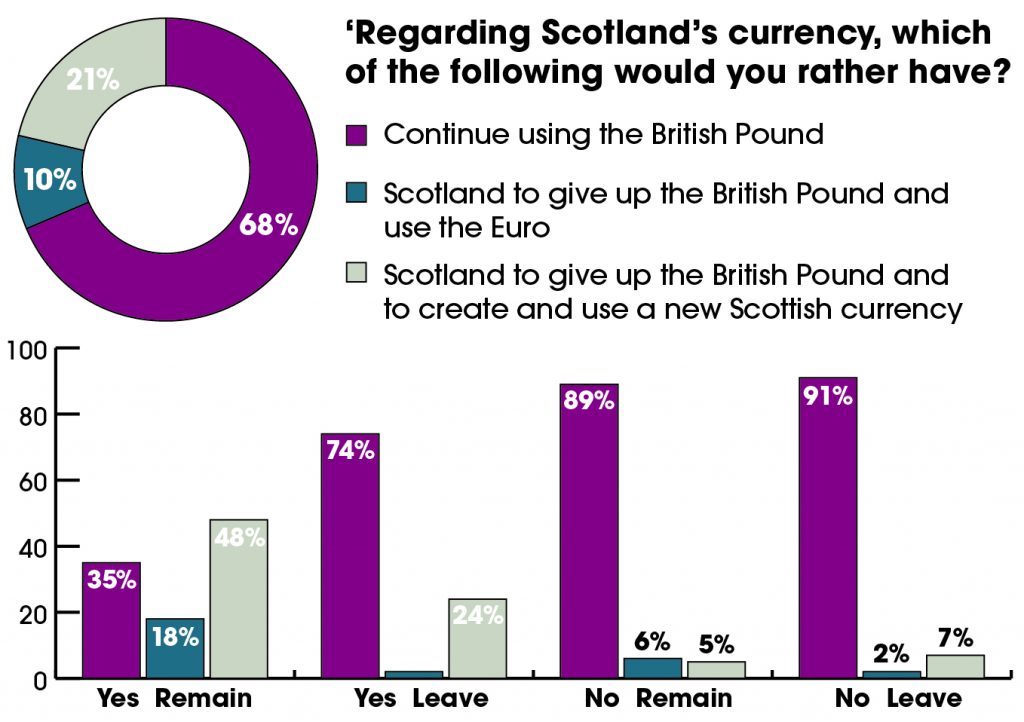
ONLY one in five Scots back the creation of a separate currency for an independent Scotland, a new poll has revealed.
The research into attitudes to the specifics of Brexit and independence was commissioned by the Labour Party and shows keeping the pound remains the strongest preference for more than two-thirds of voters.
Overall, Brexit is considered to be the most important issue facing society today according to 28% of Scots, followed by the NHS, immigration and the cost of living.
The issue of Scottish independence was only ranked as the most important by 8% of people.
A total of 36% of respondents who voted SNP in 2015 agreed with the statement the party should “stop talking about referendums and get on with the job of governing Scotland”.
More than a third of SNP supporters backed Brexit last year and the polling shows a split in opinion on European and independence issues among Yes voters.
The polling was conducted by BMG Research.

Dave Anderson, Labour’s shadow Scottish secretary, said: “This polling makes clear the SNP does not even speak for its base support let alone the whole of Scotland.
“It is clear that Scots don’t want a hard border with the rest of the UK and neither do they want to join the euro, both of which would almost certainly become a very real prospect if the SNP got its way and Scotland left the UK and joined the EU.
“The SNP are about one thing and one thing only. But, as this polling shows, their latest strategy to use Brexit to help with their cause of independence is not something the Scottish people will support.”
The poll asked “if the SNP should stop talking about referendums and get on with the job of governing Scotland”.
Of the people who voted SNP at the 2015 General Election, 36% agreed with the statement. The breakdown showed only 24% of “Yes/Remain” voters agreed or strongly agreed with the statement, while 62% of “Yes/Leave” voters supported the statement.
Respondents were also asked: “If the rest of the UK left the EU but Scotland remained in, there could be a ‘hard border’ (i.e. border checkpoints) between Scotland and the rest of the UK. If you had to choose, what would you rather have?”
A total of 61% backed free trade and no borders with the rest of the UK but with Scotland outside of the EU.
The rest opted for hard borders with the rest of the UK but with Scotland in the EU.
When asked what was the biggest issue facing society, those in the “Yes/Leave” camp said it was immigration (30%) compared to just 8% of them saying independence. Even “Yes/Remain” voters said Brexit was more important than independence.
The poll of 924 adult Scots was carried out between December 9 and 13 last year.
An SNP spokesman said: “Brexit is rightly viewed as one of the biggest issues facing the country. The SNP are entirely focused on protecting Scotland from the catastrophic effects of a hard Tory Brexit which would cost 80,000 jobs in Scotland over the next decade.”
Analysis
THE SNP’s MPs got into trouble last week for humming Ode To Joy in the House of Commons during a crunch Brexit vote.
But the uplifting EU anthem could have been set to nearly everything the Nationalists have done since June 23 last year.
The SNP’s relentless love bombing of the EU reflects the mood of the nation – 62% of Scots wanted to stay in the alliance – but it also feeds the reinvigorated independence cause.
However, herein lies a truth that is more ignored than inconvenient.
More than a third of SNP voters backed Brexit and yet this has been airbrushed from the
party’s narrative bar the valiant, near sandwich-board-wearing efforts of former Health Secretary Alex Neil.
This BMG poll shows a real divergence in views of pro-independence voters and if we have a second referendum then the Yes side needs to address its own differences of opinion before it tries to win over No voters and ally their fears over borders and currency.

Enjoy the convenience of having The Sunday Post delivered as a digital ePaper straight to your smartphone, tablet or computer.
Subscribe for only £5.49 a month and enjoy all the benefits of the printed paper as a digital replica.
Subscribe